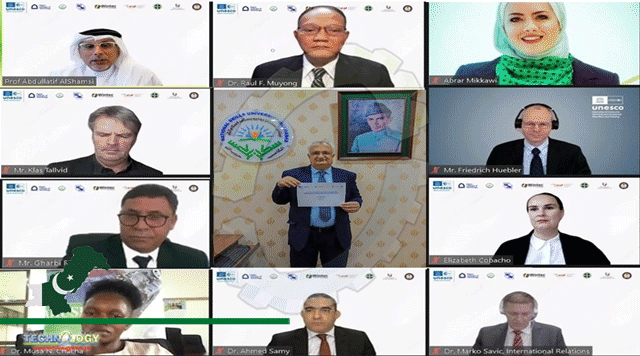The prime objective of this consortium is to get prepared with better strategies in the Technical and Vocational Education and Training (TVET) mainly based on lessons learned from the recent pandemic of the COVID-19.

The National Skills University Islamabad signed a landmark collaborative initiative on promoting skills education with seven educational institutions from across the world including New Zealand, Philippines, Russia, Sweden, Tanzania, Tunis, and United Arab Emirates. The virtual signing ceremony was held in Abu Dhabi with the UNESCO-UNEVOC International Centre for TVET, Germany.
Mr. Ahmed Samy welcomed all participants of the consortium. He disclosed that the prime objective of this consortium is to get prepared with better strategies in the Technical and Vocational Education and Training (TVET) mainly based on lessons learned from the recent pandemic of the COVID-19. The head of UNESCO/UNEVOC, Mr. Friedrich Huebler, described the role of his center in promoting TVET education through supporting consortia like this one. He emphasized closer interactions among educational institutions to train youth in technical and vocational education across the globe and identify new strategies for scenarios like COVID-19.
Academic leaders from all eight UNESCO/UNEVOC centers addressed the ceremony, including Prof. Dr. Abdullatif Al Shamsi, President & CEO of the Higher Colleges of Technology (HCT), United Arab Emirates. In his address, Prof. Mukhtar, Vice Chancellor of the National Skills University Islamabad, and member of this consortium, said that COVID-19 pushed us into a digitalized and highly interconnected world. There is an urgent need for future foresight and institutional capacity building across the globe. The National Skills University Islamabad, Pakistan, is looking keenly to share and learn from collegial collaborations in governance, technical and vocational education teaching-learning practices by participating in this UNEVOC Network Coaction initiative.